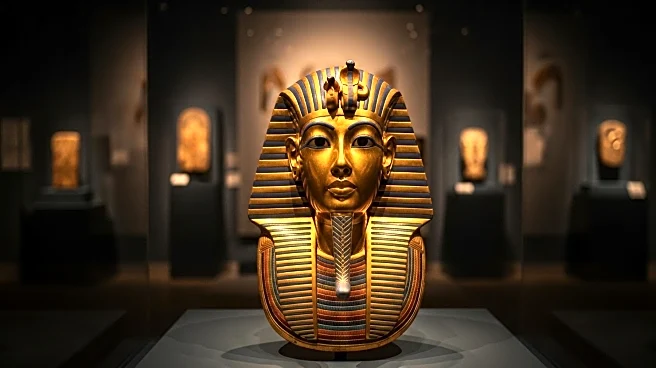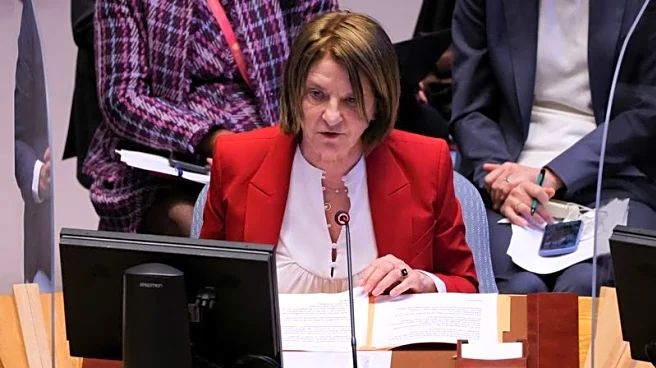What's Happening?
UNESCO is set to appoint Khaled el-Anani, a former Egyptian tourism and antiquities minister, as its new director following a nomination by the agency's executive board. El-Anani, who emerged as the front-runner against Congolese economist Firmin Edouard Matoko, will be the first director from the Arab world if confirmed by UNESCO's general assembly next month. This leadership change comes in the wake of the Trump administration's decision to withdraw the United States from UNESCO, leading to a significant budget shortfall for the agency. UNESCO, known for its World Heritage sites, also focuses on education, Holocaust awareness, and scientific research in developing countries. The agency has faced accusations of mismanagement and waste, and the U.S. withdrawal is seen as allowing China to increase its influence within the organization.
Why It's Important?
The nomination of Khaled el-Anani as UNESCO's director is significant due to the agency's current financial challenges and geopolitical shifts. The U.S. withdrawal, attributed to UNESCO's perceived politicization and anti-Israel stance, has left a funding gap that could impact its global initiatives. El-Anani's leadership may influence UNESCO's cultural programs and efforts to combat antisemitism and religious intolerance. His appointment is also a diplomatic achievement for Egypt and the Arab world, potentially altering the balance of influence within UNESCO. The agency's reliance on private sector funding may increase as it seeks to compensate for the loss of U.S. support, affecting its operational capacity and strategic priorities.
What's Next?
UNESCO's general assembly is expected to confirm Khaled el-Anani's nomination next month, solidifying his role as director. El-Anani has expressed intentions to focus on cultural programs and to attempt to bring the U.S. back into the UNESCO fold. Both el-Anani and his challenger, Firmin Matoko, have pledged to seek private sector funding to address the agency's financial shortfall. The broader U.N. system faces financial challenges and geopolitical divisions, which may influence UNESCO's future operations and priorities. El-Anani's lack of U.N. experience could lead to reform decisions that reshape the agency's approach to global cultural and educational initiatives.
Beyond the Headlines
The appointment of an Arab director at UNESCO may have cultural and diplomatic implications, potentially strengthening ties between Arab countries and the agency. El-Anani's background in Egyptology and tourism could bring a unique perspective to UNESCO's cultural preservation efforts. The agency's financial challenges may prompt a reevaluation of its priorities and strategies, influencing its role in global cultural diplomacy. The shift in leadership could also impact UNESCO's relationships with member states and its ability to navigate geopolitical tensions, particularly in regions affected by conflict and political instability.










